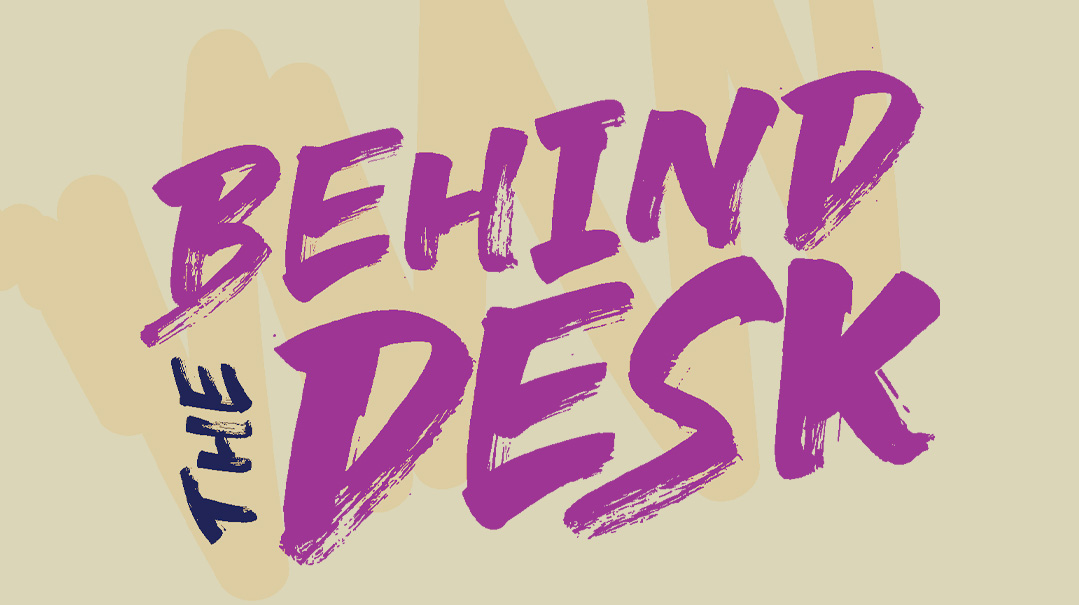Teens Talk About… Growth Mindset
| October 24, 2023Teens' insights on what works, what doesn’t, and how they find and create inspiration in daily life

Having a growth mindset means that you’re always looking to grow and change. But is that reasonable all the time? And how can we grow when faced with challenges? We spoke with teens and got their insights on what works, what doesn’t, and how they find and create inspiration in daily life.
Fraidy, 17:
It’s very important to always want to grow but you also have to know that it’s not always going to happen. Be hungry for growth but don’t be disappointed every time you fail. Not growing from an experience doesn’t mean you’re failing! There’s something to learn from the moments when you don’t change. Why was it so hard then? What about you makes it so tough to find that growth in that situation?
So how do you have a growth mindset? Go into each situation and try to take just one small thing out of it. It’s like when there’s a Yom Iyun in school. You can’t take every part of what you hear and try to be inspired, or you’ll be overwhelmed and lose it all. Better to pick one bit that means something to you and let it change you.
Tzippy G., 15:
I have a friend who reads Living Emunah on the daily. Something like that brings you closer to Hashem and helps you through hard times by inspiring you. Sometimes inspiration is just for that moment. But sometimes it resonates, and you can take it with you through your life by going back to it and reading it over and over again.
Devorah B., 15:
When I was twelve, my bas mitzvah was scheduled for the weekend that Covid first hit my city. I still remember that Motzaei Shabbos when I found out that my big event had to be cancelled. It was really hard, but it also made me stop and reflect on all the good things in my life. I realized how much brachah I have, and somehow, that made things okay! That experience taught me that our main goal in life is to grow and become the best ovdei Hashem we possibly can be. Nobody’s perfect, of course, but I’ve come to see our challenges as real opportunities to grow.
Leah H., 14:
To me, having a growth mindset just practically makes sense. You can learn something from everything that happens, good or bad — there’s always some lesson you can take away. When it comes to tests or school, it’s easy. If you don’t do well, you have two choices: You can either get upset and blame yourself, or you can take a step back and rethink how you study, learning how you can do it better next time.
Miriam H, 13:
When it comes to trauma and crises, though, you can’t expect someone who’s been through it to apply a growth mindset. They need time to just be sad, to wallow and feel everything. After they’ve had that space, that’s when they might be ready to think about growing from the experience.
Leah H, 14:
It’s all about timing. First, just be there for them and offer support. After some time has passed and they’ve started processing, you can gently start guiding them into seeing things from a different perspective.
Miriam H, 13:
My mother’s a speech therapist and she always tells me that when she wants to help kids learn better, she doesn’t just tell them that they’re smart. She makes a big deal about the effort they’re putting in, complimenting that. It’s the effort that brings results. That’s a growth mindset.
Miriam S, 16:
As Jews, we know that it’s our mission and ultimate goal in life to grow as much as we can, and to become better people. But it’s so much easier said than done. Even if we take the time to give ourselves a good self-reflection, it can very easily be discouraging. None of us are perfect and we see every flaw and shortcoming inside ourselves. Growth can sometimes seem very daunting of a mountain to climb and we wonder if we’ll ever make it there.
But here’s the thing — growth isn’t about climbing up that mountain in one day. We need to remember that growth isn’t a means to achieve an end goal — growth IS the goal. It’s all about taking the first step, as tiny as it may be, to inch closer to the person we want to become.
And some days it feels too hard. We’re human, it’s okay. If today was hard, there’s always tomorrow. Part of having a growth mindset is making room for failure. Look at your mistake, and tell yourself, “It’s okay. I’ll try again tomorrow.”
Instead of stressing about how far you have left to go, celebrate your little accomplishments. Everyone’s growth is unique to themselves. And at the end of the day, if two people are on the same spiritual level, but one was born that way and one had to work tremendously to get there, then Hashem appreciates the effort more than someone who did nothing to achieve their level. All Hashem wants for us is to try our best, and that’s all we can give.
Miriam S, 16:
As Jews, we know that it’s our mission and ultimate goal in life to grow as much as we can, and to become better people. But it’s so much easier said than done. Even if we take the time to give ourselves a good self-reflection, it can very easily be discouraging. None of us are perfect and we see every flaw and shortcoming inside ourselves. Growth can sometimes seem very daunting of a mountain to climb and we wonder if we’ll ever make it there.
But here’s the thing — growth isn’t about climbing up that mountain in one day. We need to remember that growth isn’t a means to achieve an end goal — growth IS the goal. It’s all about taking the first step, as tiny as it may be, to inch closer to the person we want to become.
And some days it feels too hard. We’re human, it’s okay. If today was hard, there’s always tomorrow. Part of having a growth mindset is making room for failure. Look at your mistake, and tell yourself, “It’s okay. I’ll try again tomorrow.”
Instead of stressing about how far you have left to go, celebrate your little accomplishments. Everyone’s growth is unique to themselves. And at the end of the day, if two people are on the same spiritual level, but one was born that way and one had to work tremendously to get there, then Hashem appreciates the effort more than someone who did nothing to achieve their level. All Hashem wants for us is to try our best, and that’s all we can give.
Calling all teen writers!
What are your thoughts on the topic of body language? Share your unique writing (poem, story, song, etc.) about nonverbal communication in 50-150 words and be entered to win a surprise package delivered to your door! Send your entries to cozey@mishpacha.com by November 5th.
(Originally featured in Mishpacha Cozey, Issue 983)
Oops! We could not locate your form.







